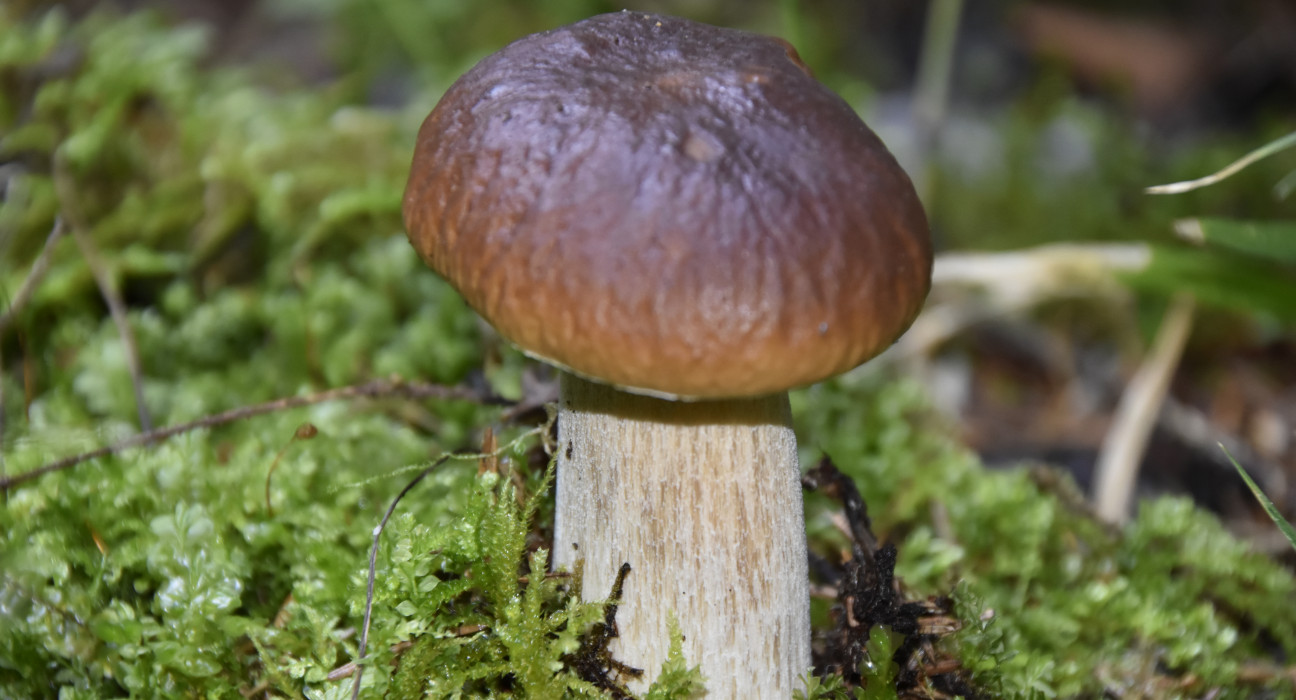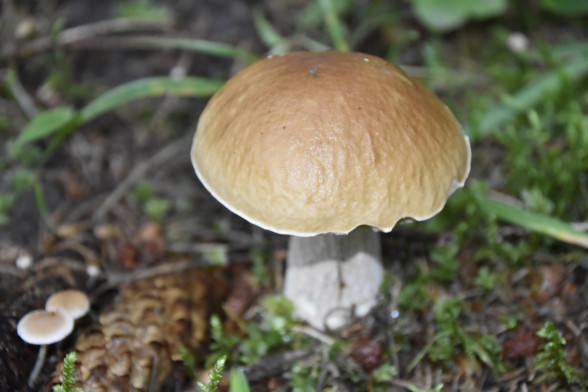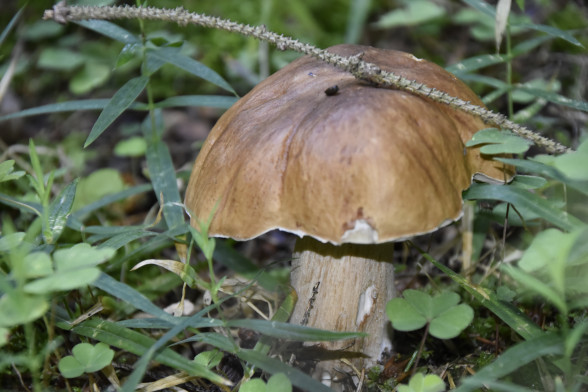
Porcini Mushrooms
Porcini mushrooms, belonging to the bolete family, are highly prized for their delectable taste. In the current taxonomy, Latvia recognizes 3 or 4 known species of porcini mushrooms and 2 or 3 forms of pine porcini mushrooms. These mushrooms typically make their appearance in Latvia from mid-June to mid-October, with fruiting bodies emerging in waves: sporadically and individually at the end of June, reaching a peak in mid-July, abundant in the second half of August, and during the first half of September in various forests and drier areas.
Known for their edibility and delightful flavor, porcini mushrooms can be fried without prior boiling and are suitable for drying and pickling.
Attention! It is essential to be aware of the common bitter bolete, also known as the bitter beka, which grows in Latvian forests. While resembling porcini mushrooms, it can be distinguished by the strongly reticulated pattern on the stem, red discoloration at the stem's base when cut, and red swollen pores. Although the fungus may have a white stem in its youth, tasting it right there in the forest is recommended to confirm its identity, as culinary mixing with other mushrooms is unacceptable. While not poisonous, the common bitter bolete is not edible due to its bitter taste.
If you have doubts about a specific mushroom while foraging, it is better not to take the risk and leave it behind.
Interesting Facts
Porcini mushrooms, much like humans, enjoy a bit of sunbathing. When they thrive in the shade of trees and grass, their caps tend to be very light. However, if they find a spot regularly exposed to sunlight, their caps quickly take on a dark brown, chocolate-like color.
The growth rate of porcini mushrooms is considered moderate. Within a week, they can reach a size of approximately 10-12 cm, gaining 10-30 grams every 24 hours. In favorable conditions, they exhibit a growth rate of about 2 cm per day, perhaps slightly less. However, if conditions are unfavorable, their growth may slow down or come to a complete halt.


